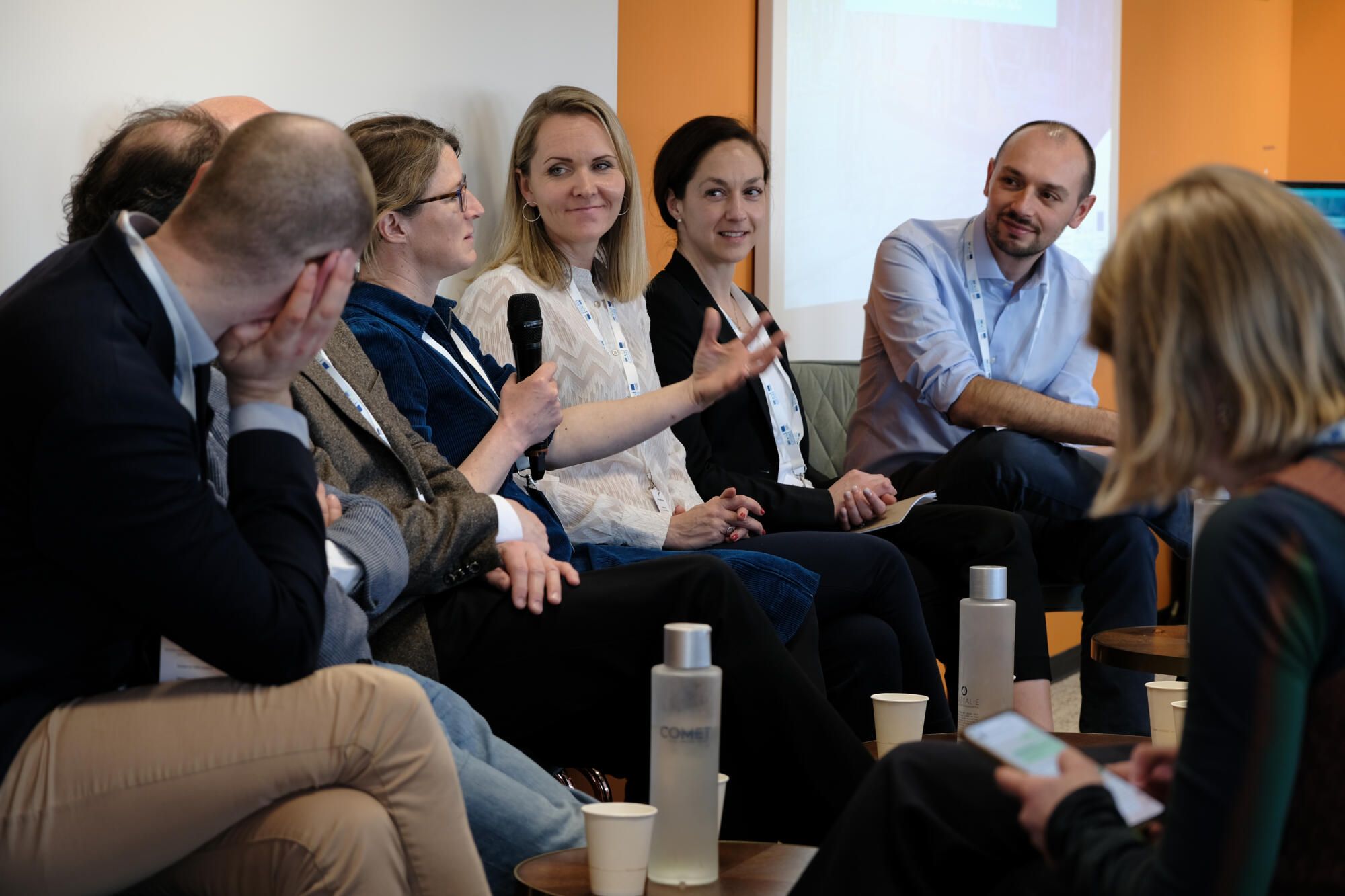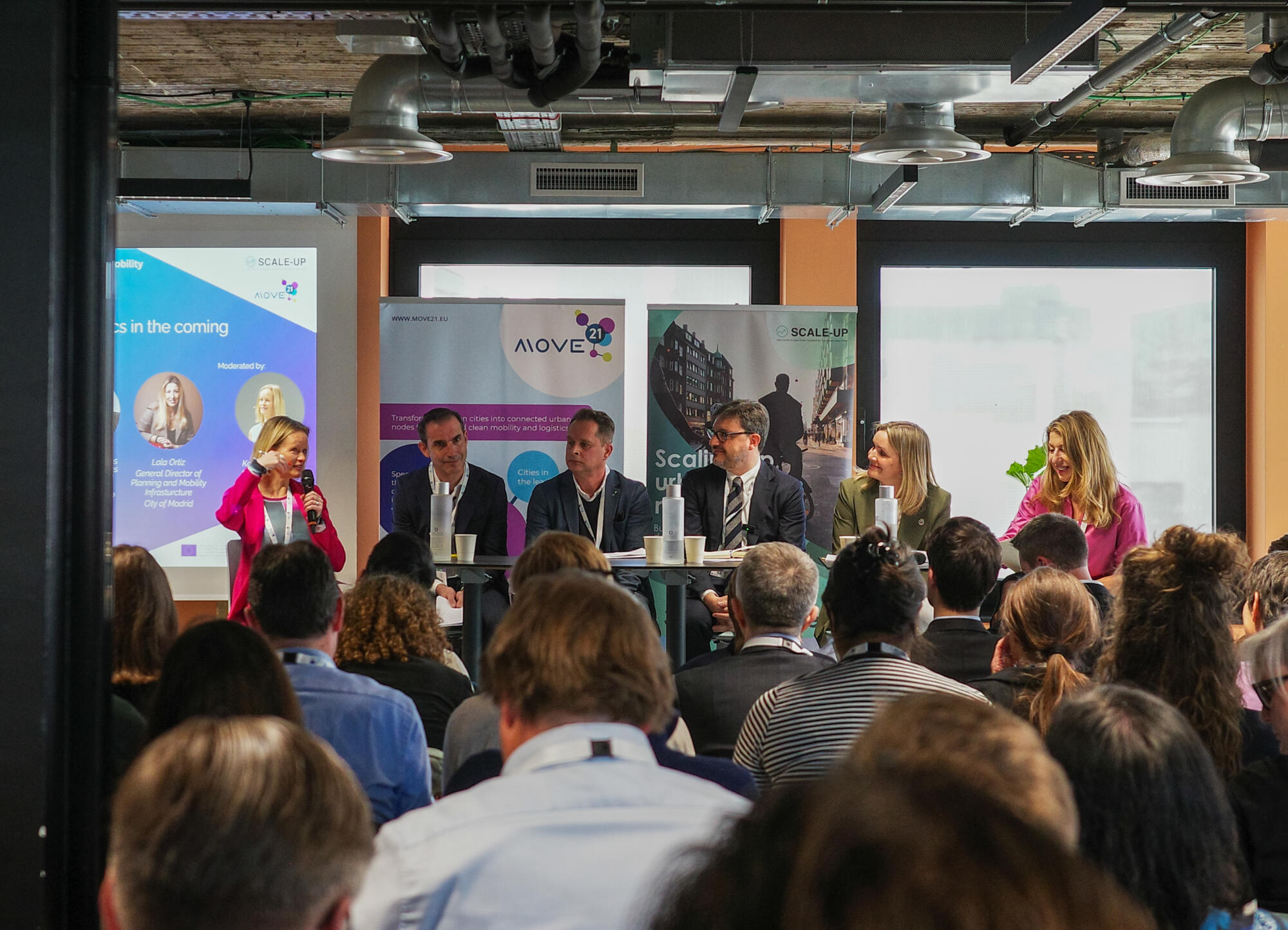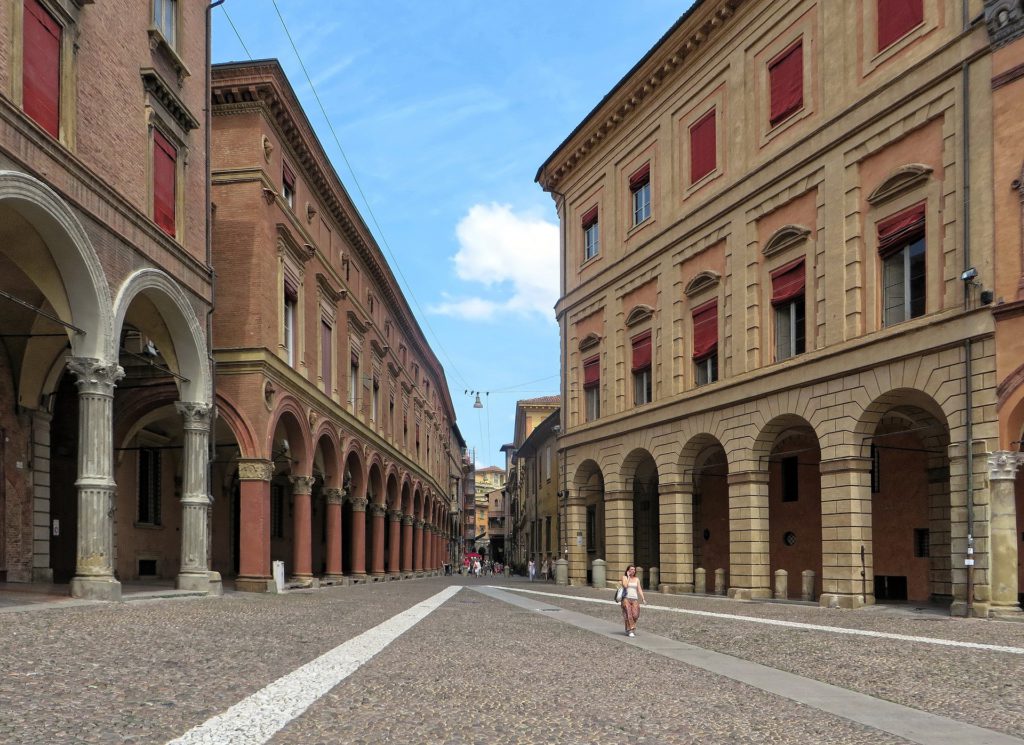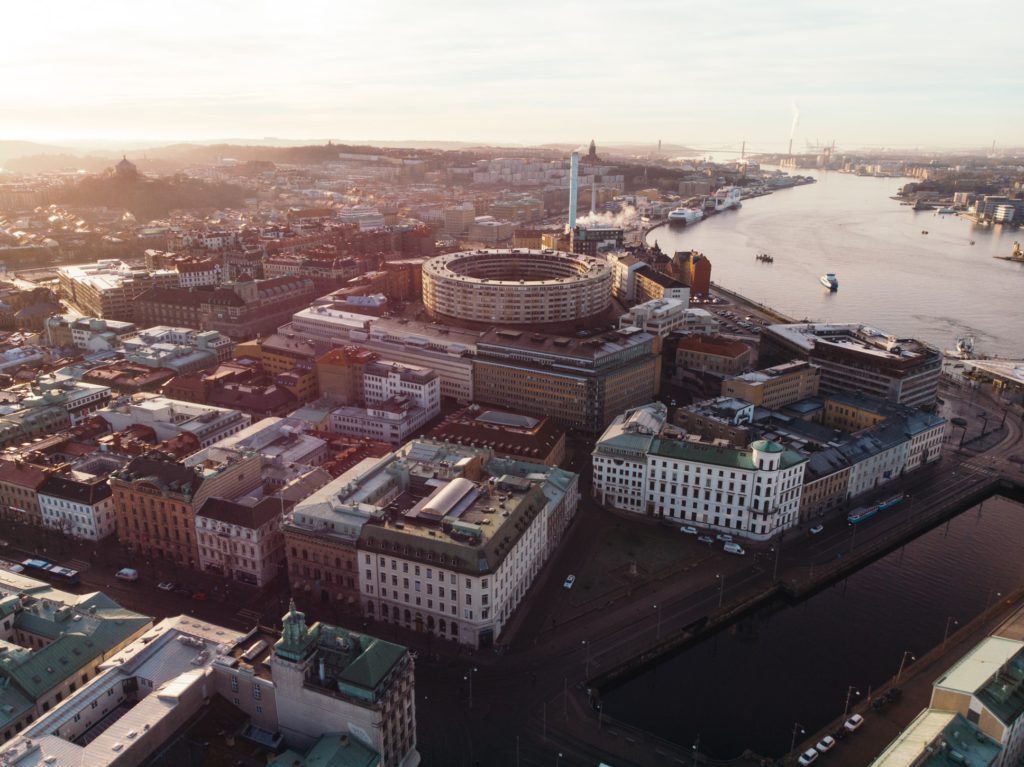MOVE21 successfully wraps-up with a ground-breaking final event
After two days of insightful discussions and knowledge exchange, the final joint event of the EU-funded projects MOVE21 and SCALE-UP 'Next Steps Towards Cities as Green and Connected Nodes for Urban Mobility' has drawn to a close.
On April 1-2, 2025, Brussels hosted the joint final event of the MOVE21 and SCALE-UP projects at COMET Louise, with more than 160 participants. These EU-funded Horizon 2020 initiatives have been instrumental in advancing urban mobility and multimodal transport solutions across Europe.

Credits—Raffaele Vergnani
Across the two days, more than 14 sessions and 60 speakers covered a wide range of topics—from multi-level governance and public-private collaboration to multimodal hubs, digitalisation, urban logistics and behavioural change. POLIS was one of the co-organisers of the event, along with Eurocities, the Smart Transportation Alliance (STA), and the cities of Oslo and Antwerp.
The two-day event convened policymakers, city leaders, innovators, and sustainability experts to discuss and showcase proven solutions aimed at inspiring scalable change in urban mobility. Key topics included strategies to enhance Sustainable Urban Mobility Plans (SUMPs) and the opportunities for cooperation in passenger and logistics transport within urban hubs, particularly in light of the new TEN-T Regulation.
Discussions delved into multi-level governance and public-private collaboration schemes, highlighting the importance of coordinated efforts in achieving sustainable mobility goals. Innovative practices, such as the development of multimodal hubs, were showcased as effective solutions for integrating various modes of transport. The role of digitalisation and behavioral change in transportation was also emphasized, underscoring the need for technological advancements and shifts in public perception to drive progress.
Insights from pilot and replication activities conducted in over 10 European cities were shared, providing valuable lessons on the practical implementation of mobility solutions. The discussions also addressed the innovation capacity of local authorities, recognising their pivotal role in fostering and implementing sustainable urban mobility initiatives.
The event served as a platform for participants to exchange ideas, build connections, and contribute to the ongoing dialogue on shaping the future of sustainable urban mobility in Europe.
POLIS' take
Karen Vancluysen, POLIS Secretary-General, moderated the high-level session 'Priorities for Urban Mobility and Logistics in the Coming Years'. The session explored the evolving landscape of urban mobility and city logistics, identifying key priorities and strategies to shape resilient, efficient, and sustainable transport systems for the future. The session featured several political representatives from leading European cities, including POLIS members, and key representatives from leading organisations such as UITP and ETP-ALICE. Panellists included:
- Eugenio Patané, Deputy Mayor on Sustainable Mobility and Transport, City of Rome
- Marit Vea, Vice Mayor for Environment and Transport, City of Oslo
- Lola Ortiz Sanchez, General Director of Planning and mobility Infrastructure, Madrid City Council
- Hans Schurmans, Director Logistics Operations, Proximus, and Co-Chair of the Thematic Group on Urban Logistics at ETP-ALICE
- Sylvain Haon, Senior Director, Strategy and Transformation, UITP

Credits—Rikke Dahl Monsen
Ivo Cré, Director Policy and Projects, joined the session 'Identified gaps and needs for urban nodes – an outlook', which examined key gaps and needs for urban nodes, focusing on leveraging project learnings for SUMP development. He stated:
'Adequate financial resources are essential to meet the requirements outlined in TEN-T legislation. The urban nodes dimension of the Connecting Europe Facility (CEF) Programme should be strengthened the role of urban nodes and the perspective of the Urban Nodes Alliance. The EU should design its funding mechanisms in response to Urban Nodal needs through legally requiring local and regional level involvement in the definition of funding priorities and procedures.'
Raffaele Vergnani, Urban Freight Cluster Lead, moderated two parallel sessions on both days. The first one focused on mobility hubs, exploring new developments in hub design that broaden their role—mixing uses such as social spaces, logistics operations, and 'mobility hotels' that provide supporting services to help companies transition to more sustainable last-mile logistics. Representatives from the cities if Oslo, Hamburg, and POLIS members Madrid and Gothenburg showcased some of the measures implemented in both projects. The second parallel session focused on innovative strategies, technologies, and policies that enhance urban logistics, addressing challenges such as congestion, emissions, and last-mile delivery inefficiencies. A mix of public and private players, such as the city of Gothenburg and Munich, the Business Region Gothenburg, Deutsche Bahn, Be-Mobile and Vinka, joined the conversation.
'The private sector is often at the forefront of innovations in many transport domains, such as smart mobility infrastructure, traffic management systems, urban logistics innovation and digital innovation. Cities and regions are excellent test beds for new solutions and can gain valuable insights in how they can improve, organise and regulate urban mobility and logistics.'
The slides and proceedings of the event will be published on the MOVE21 and SCALE-UP project websites.










